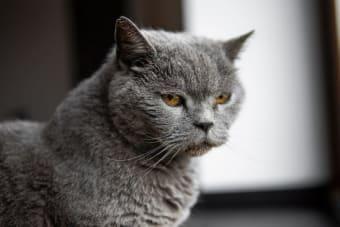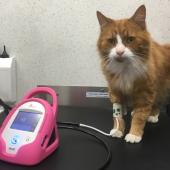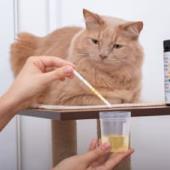Caring for Your Elderly Cat: Providing Comfort and Quality of Life in Their Golden Years

As our feline companions age, they require special care and attention to ensure they lead happy, comfortable lives. Just like humans, cats experience various changes in their health and behavior as they grow older. Understanding these changes and implementing appropriate care strategies is essential for ensuring the well-being of your elderly cat. This article provides valuable insights into caring for your aging feline friend, promoting their health, comfort, and overall happiness during their golden years.
Old age - caring for your elderly cat
Everyone finds a kitten adorable, but they grow up far too quickly. Cats of all breeds will reach maturity at one year of age. While every cat ages differently, most cats who are 10 years old can be classified as elderly.
How do I keep my cat healthy?
Like human aging, senior cats slow down, usually need less exercise, and may start gaining weight. It's possible that your cat isn't as inclined to go outside as he once was. Many cats get friendlier as they get older, preferring to spend more time indoors with their loved ones and enjoying attention. Older cats may become agitated from time to time. If your cat's behavior changes, you should ask your veterinarian to inspect her since she might be displaying signs of illness or pain.
1. Regular Veterinary Check-ups
Regular vet care is just as important for older cats as it is for kittens, if not more. Throughout a cat's life, routine immunization is crucial since infectious diseases can be quite dangerous for year to monitor their health, detect potential issues early, and establish appropriate preventive care plans. Your veterinarian can recommend senior-specific tests, such as bloodwork and urinalysis, to identify age-related conditions like kidney disease, diabetes, or thyroid imbalances.
2. Balanced Nutrition
Dietary needs change as cats age. Senior cat food formulas are specifically designed to meet the nutritional requirements of older cats. These formulas typically contain reduced calories, lower fat content, and higher levels of essential nutrients like protein and fiber. Consult your veterinarian to choose the best diet tailored to your cat's specific health needs.
3. Weight Management
Maintaining a healthy weight is crucial for elderly cats. Obesity exacerbates various health issues, including arthritis and diabetes. Work with your veterinarian to establish a balanced diet and appropriate portion control to manage your cat's weight effectively. Regular exercise, in the form of interactive play and gentle physical activities, can help keep your cat active and engaged.
4. Dental Care
Dental problems are common among older cats. Dental issues can cause discomfort and affect your cat's overall health. Implement regular dental care routines, including brushing your cat's teeth, providing dental treats, and scheduling professional dental cleanings with your veterinarian.
5. Comfortable Living Environment
Adapt your home to accommodate your aging cat's needs. Provide comfortable, soft bedding in warm, quiet areas where they can rest undisturbed. Ensure litter boxes are easily accessible and kept clean. Consider providing ramps or steps to help them access higher surfaces, as mobility can become a challenge for older cats.
6. Regular Grooming
Elderly cats may require additional grooming assistance, especially if they have arthritis or other mobility issues. Regular brushing helps maintain their coat, reduces shedding, and provides an opportunity for you to check for lumps, bumps, or skin irritations. Be gentle and patient during grooming sessions to keep the experience stress-free for your cat.
7. Mental and Emotional Well-being
Stimulation and companionship are vital for senior cats. Provide interactive toys, puzzle feeders, and social interactions to keep their minds active and engaged. Spend quality time with your cat, offering affection and attention, which can significantly contribute to their emotional well-being.
Do older cats need special food?
Some senior cats may start to lose weight and may require more food (or better quality food), but if your cat is gaining weight you may need to cut back on how much you feed her. Older cats may have a diminished sense of taste and smell. If your cat doesn't seem hungry, try serving her stronger-smelling, richer meals to encourage her to eat. Due to their decreased digestive capacities, older cats may require a higher food intake in order to fully absorb all of the nutrients in it. If your cat begins to gain or lose weight, you should always have her checked out by your veterinarian as this could indicate a serious medical issue that needs to be addressed. Your veterinarian can provide you with diets specifically made for senior cats. Giving cats milk is not required, but there should always be an abundance of fresh, clean water accessible because senior cats frequently require more water. Ask your veterinarian to examine your pet if she starts drinking more water because increased thirst in senior cats is often the first sign of sickness.
What diseases are common in older cats?
Our bodies begin to function less effectively as we age; cats' bodies also experience this. The kidneys or heart of your cat might not function as effectively as they once did, or hyperthyroidism—an overactive thyroid gland—could develop in your cat. As long as your veterinarian sees your cat before the illness progresses too far, they should be able to assist you treat these diseases. Make an appointment to see your veterinarian as soon as possible if you have concerns about the health of an elderly cat.
Is it fair to treat disease in an old cat?
If given proper care, domestic cats can live up to 20 years or more. Early veterinary intervention can also help prevent significant health issues. It is never acceptable to accept poor health as you get older, and you can make sure your cat has a high quality of life by taking good care of her.
Conclusion
Caring for your elderly cat requires dedication, patience, and understanding. By addressing their specific needs, maintaining regular veterinary care, and providing a loving and comfortable environment, you can ensure that your aging feline companion enjoys their golden years with grace and dignity. With your support and attentive care, your senior cat can continue to thrive and enjoy a high quality of life throughout their aging journey.



